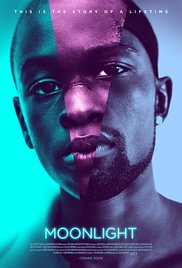 Friday night, Jessica and I had a decision to make: were we going to see Lego Batman or Moonlight? We ended up choosing the latter, partially under the logic that plenty of people were going to see Lego Batman, and we might as well reward the theater for picking the less popular but more serious movie, which had just won an Oscar for Best Picture.
Friday night, Jessica and I had a decision to make: were we going to see Lego Batman or Moonlight? We ended up choosing the latter, partially under the logic that plenty of people were going to see Lego Batman, and we might as well reward the theater for picking the less popular but more serious movie, which had just won an Oscar for Best Picture.
The logic behind the choice has come back to hit me harder than I thought it would: Moonlight is an important movie, one that we need now, more than ever.
This isn’t going to be so much a review of Moonlight (you can find an excellent review on Roger Ebert’s site), though I will say Moonlight may be one of the most perfect, character-driven dramas I have ever seen. Instead, it’s going to be a plea of sorts, an argument, for why you need to see it, sooner rather than later. Why the argument? I’ll get to that in just a moment.
As often happens with a movie as powerfully immersive as Moonlight, it lingered with me, and I found myself needing to bounce my thinking about it off of others. After talking it over with Jessica, I found the above-mentioned review. Even though I knew what I probably would find there, I scrolled down to the comment section and found this sad little post:
“Can anyone explain to me why this film is “important?” Because there are crack-hos and gay black people and drug dealers with hearts of gold? How am I not a complete human being if I don’t absolutely adore this mediocre trash and weep inconsolably whenever I think of poor little Little or Chevron or Black or whatever his real name is? My life was not “affirmed” by somehow surviving this torturous, dull, self-indulgent and amateurish melodrama. The emperor has no clothes!”
Yes, it’s a comment on the internet (Beware: here there be trolls). But it’s not an out and out troll comment (there’s at least some struggle to know what they’re missing), and more, I know that a movie that focuses on the coming of age of a gay black man in Miami is going to be tough content for some people. Let’s face it, we don’t see many movies like this, particularly one that has won major awards.
I’m actually a big believer in saying that not every movie and not every book is for everyone, no matter how good it might be. And you sometimes have to be in the right mood to handle an excellent movie or play (if you’re wanting comedy, you probably shouldn’t watch King Lear). But for someone to have apparently sat through the whole of Moonlight as this commenter did and have it pass clear above their heads is absolutely depressing.
Moonlight is about identity and trying to find it. About being crushed by others as you try to find it. And no matter how 100% awesome and sure of yourself you might be at this moment, every human struggles with identity. Everyone. So for someone to watch a movie that shows that struggle in a fellow human as perfectly and understandably as the film medium can allow, but still only focus on the externals of its characters? There is something wrong with that viewer.
Our society is increasingly focused on walls now—literal, political, or emotional—maybe more so than it has been at any other time in my thirty-eight years. Maybe the 80s and that part of the Cold War is on par or even worse, but it’s impossible to argue something hasn’t been going down the drain more and more the past couple years. And this problem isn’t due to one group or another, either. Take your pick of the current news: no matter where you look, it’s easy to see humans refusing to listen to each other, whether it’s conservatives ignoring/attacking those who don’t agree with them or this protest/attack on a conservative speaker at Middlebury College. We’d rather shout each other down, or win an argument or election than listen.
What beauty we are missing. I’ve never been to Miami; I’ve never had a parent struggle with addiction. I’m just a straight white guy that has lived his whole life in the Midwest, but I could feel and understand Chiron’s life, the protagonist of Moonlight. The movie is told in three parts, with Chiron in childhood, adolescence, and early adulthood. Each section pivots on a key scene, with Chiron reacting to the ocean. The joy Chiron feels as he learns to swim as a child, with ocean waves washing over him and the camera, is palpable. The hope or love or longing he feels when an ocean breeze passes over him in adolescence is impossible not to register: it’s the most happy we’ve seen him since he learned to swim. And the look on his face when he returns to the ocean as a young adult (he has been living in Atlanta for some years)? It’s the look any human makes when they see something they have missed more than they could describe.
I’d want Chiron to understand me. I know he’d understand the look on my face when I saw my wife for the first time in weeks. It shouldn’t matter that he’s never been to Minnesota or lived as I have lived.
And it really doesn’t.
